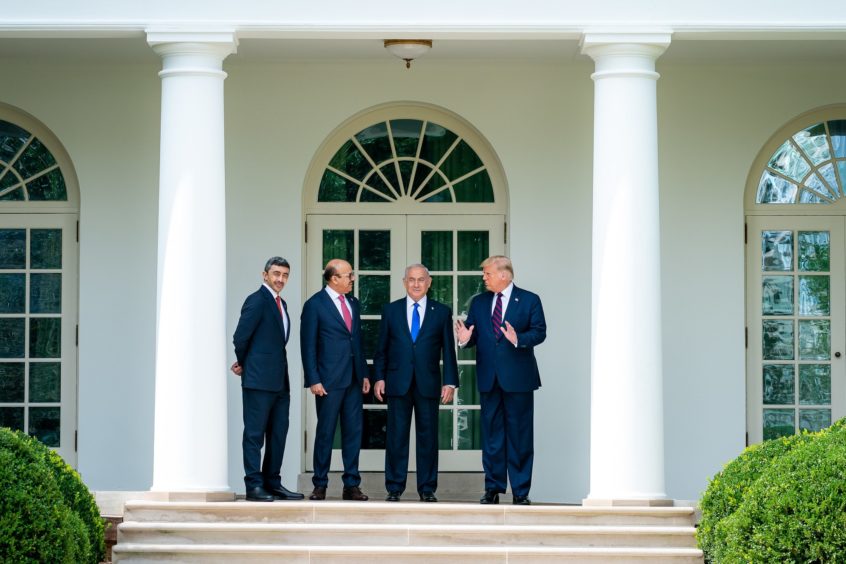
Israel and the United Arab Emirates have opened talks over an oil pipeline linking the Red Sea with the Mediterranean, whose operations Israeli officials treat as top secret.
Europe Asia Pipeline Co. (EAPC), controlled by Israel’s government, and UAE-based MED-RED Land Bridge signed a memorandum of understanding to collaborate on the transportation of crude and oil products between the Persian Gulf and Western markets, according to an EAPC statement on Tuesday.
The agreement comes after the UAE, OPEC’s third-biggest oil producer, and Israel announced in August they would normalise ties. The two have since discussed establishing embassies, starting direct flights and business deals.
EAPC operates the Eilat-Ashkelon pipeline, built by Israel and Iran in the 1960s. It has a capacity of 600,000 barrels a day and almost 23 million barrels of storage space. Most oil sent from the Gulf to Europe is either shipped through the Suez Canal or via Egypt’s Sumed pipeline, which can pump 2.5 million barrels daily.
The Eilat Ashkelon Pipeline Co., as EAPC used to be called, was jointly owned by the Jewish state and Iran’s government. Tehran would ship some of its Europe-bound oil to Eilat and then pipe it to Ashkelon on the Mediterranean.
After Iran’s Islamic Revolution in 1979, the nations became enemies. Yet for some years Israel still allowed Iranian oil to be sent through the pipeline in secret, including by Glencore Plc founder and sanctions-busting commodities trader Marc Rich.
The two countries have argued over the pipeline more recently, with Tehran wanting compensation after Israel took over its 50% stake. Even today, information on what flows through the pipeline can be censored by Israel’s military.
Tuesday’s agreement, the financial details of which weren’t disclosed, will also allow traders to transport oil from the Mediterranean and Black Sea regions to Asia, EAPC said. MED-RED Land Bridge is a consortium of UAE and Israeli companies.
The pipeline project could get backing from the U.S. government. A $3 billion Jerusalem-based fund announced this week by the U.S., Israel and the UAE is supporting the effort, according to the head of the US International Development Finance Corp.